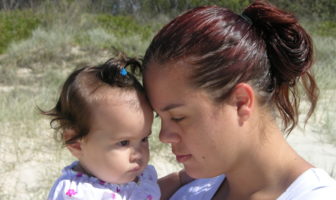Anxiety in children is normal and part of your child’s healthy development.

Postpartum Depression: When to Call Your Doctor
Giving birth is a significant milestone and event in a woman’s life. It’s normal for both men and women to experience a range of feelings during the birth of their child. Emotions that typically accompany childbirth include joy, excitement, stress, and nervousness.
Childbirth can also cause seemingly surprising emotions and reactions from both the mother and father such as anxiety, fear, dread, hopelessness, crying spells, difficulty sleeping, and depression. These feelings are commonly coined “the baby blues” and are common for many people around the world.
If “the baby blues” become intense and don’t resolve on their own within the two weeks, you might be experiencing postpartum depression. Experiencing postpartum depression does not mean there is something wrong with you. However, it’s important to know when it's necessary to seek professional help.
Reach out to your doctor when:
- Your feelings continue two weeks after the birth of your baby
- Your feelings become more intense as times goes on
- You lose interest in everyday activities that used to give you joy
- Your emotions make it difficult to care for your baby or for yourself
In extremely rare cases, postpartum depression may evolve into postpartum psychosis if left untreated or unaddressed. Psychosis can cause severe and life-threatening emotions and behavior such as harming your new baby or harming yourself. If you feel that you may be experiencing postpartum psychosis, seek emergency care immediately.
Keep in mind there are steps you can take before giving birth to assess for risk factors of developing postpartum depression. Talk to your doctor about your mental health history prior to becoming pregnant and during pregnancy. Your doctor will work with you to come up with a plan to address negative emotions before they evolve into postpartum depression. For more information and guidance on postpartum depression, click here.
other articles and videos we love
Sudden Unidentified Infant Death Syndrome (SUIDS) is diagnosed when a child under the age of 1 passes away suddenly without an initial, obvious reason.





